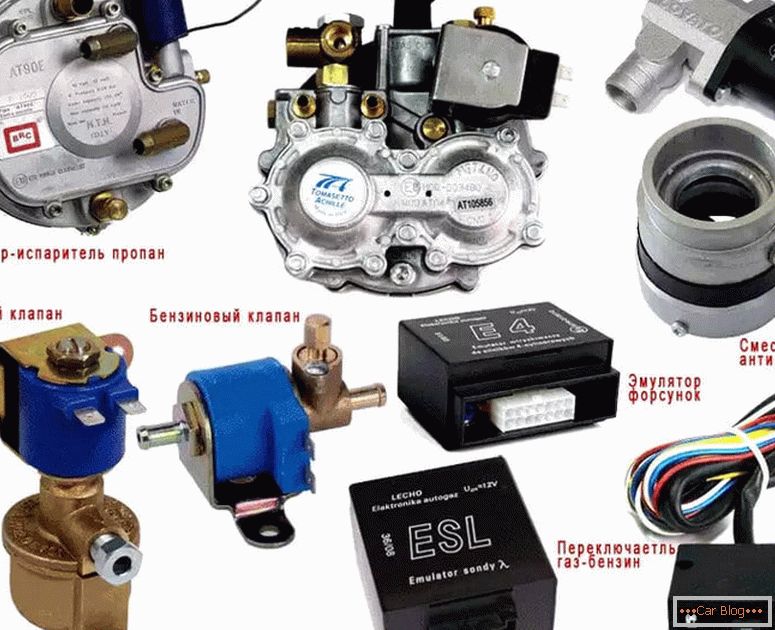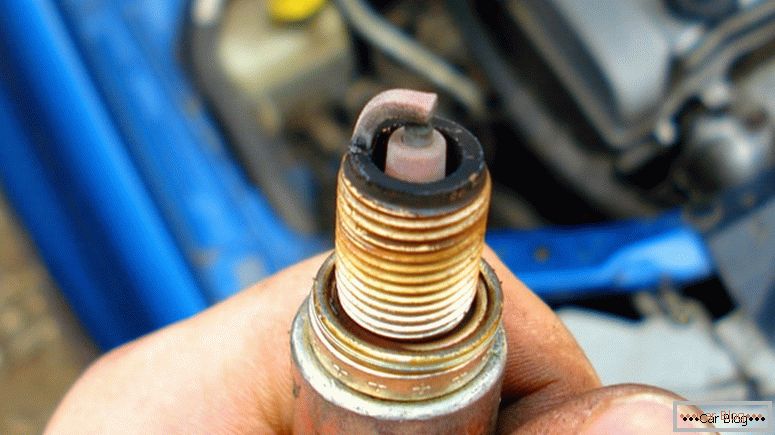>
Automotive internal combustion engine needs high-quality lubrication. A number of performance properties depend on this system, such as fuel consumption, the number of kilometers traveled between major repairs and so on. The effectiveness of reducing friction directly depends on the state of the engine system, as well as the type and quality of oil used in it. Manufacturers of consumable components create different types of oil that are required in a given situation. Car companies, in turn, indicate with which component the operation of the car will be best.
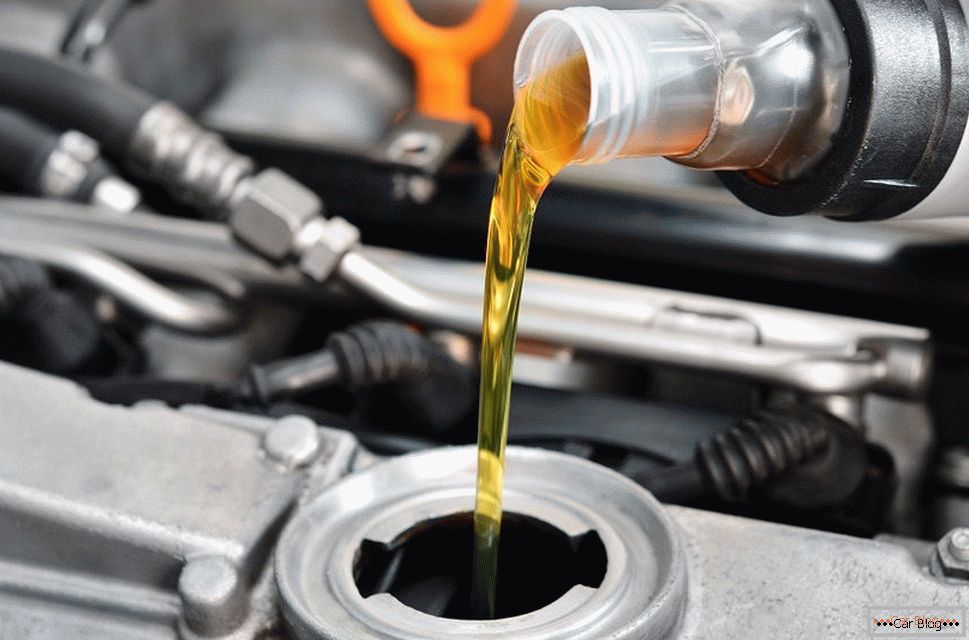
Good oil is a guarantee of long engine life.
Что касается использования масла на новом автомобиле, то этот вопрос довольно просто решить. В инструкции к машине всегда указаны виды масла, руководство по доливке и замене и ответы на различные вопросы. Кроме того, новый автомобиль, находящийся на гарантийном обслуживании, позволяет водителю обратиться в сервис в любой момент, узнав, какой состав выбрать. К сожалению, это почти не распространяется на автомобили, которые прослужили долгие годы и имеют большой пробег. В таком случае доливка и замена масла становится более сложным мероприятием.Читать далее о том, как выбрать лучшее масло для двигателей с большим пробегом-->
What mileage is considered big
First of all, it is necessary to determine the terminology. The phrase "high mileage", of course, is relative. It is necessary for the concept of how often the engine needs to be overhauled and at what level of odometer it is at risk due to wear. There is no single figure in figures - it’s impossible to say exactly which mileage is great for engines in general. As a rule, for a unit of domestic origin, high mileage is from 100,000 kilometers. At the same time, if we talk about some Japanese engines, then even 1,000,000 kilometers can hardly affect their condition. On average, imported engines can travel from 150 to 200 thousand kilometers without the need for major repairs and the risk of breakdown due to wear. If a foreign-made engine has problems with such a run, then it is most likely to be operated incorrectly - either bad oil is poured or the procedure itself is wrong.
Features of the use of oil in engines with high mileage
In order to understand what is happening in the running system of a car with high mileage, as well as to choose the right composition in such a situation, it is necessary to know the principle of lubrication in the engine. This is especially important if the car has high mileage.
In the engine, which works for a long time, the details begin to wear out.
First of all it concerns the cylinder-piston group. Its wear affects compression, therefore, reducing the fuel efficiency of the engine. In order to maintain the same dynamics, it needs more and more fuel. In such situations, the transition to synthetic oils is allowed, because they have a higher resistance to high temperatures, and also evaporate more slowly. Their composition provides better compaction - such a film allows reducing the negative impact of wear, normalizing fuel consumption.
In addition, when worn cylinder-piston system increases the number of combustion products from the chamber into the crankcase. The composition under the influence of high temperature and interaction with aggressive substances begins to oxidize (especially if the driver uses cheap oil and fuel), which leads to loss of effectiveness of the additives. The engine begins to accumulate products of combustion and corrosion appears in it. Synthetic oils provide protection against oxidation - better and longer than organic.
Synthetic oils help to solve the problem with the "cold" start of the engine. The temperature properties of such lubricants allow working with a cold system - their higher fluidity than that of an organic one, and lower viscosity at low temperatures make it possible for the crankshaft and other parts of the fuel system to fulfill their role easier. Synthetic oils save fuel at startup and allow you to make it faster. In addition, starting the engine before warming up is one of the main reasons for its rapid wear. It is known that all engines have several stages of wear:
- Period of working;
- Steady state;
- Emergency condition
Motors with high mileage are close to the emergency state - wear develops like a snowball, which makes an early breakdown inevitable. It is for such engines that special additives have been developed that are added to engine oil. They have an anti-wear booster that allows you to increase the thickness of the oil film that protects parts and separates moving surfaces. This technology provides the best protection against wear. In this case, friction losses are reduced due to a decrease in viscosity within acceptable limits.
Nagar, which is formed in the engine, over time leads to a deterioration in the mobility of internal parts. In the worst case, a thrombus can form, which completely paralyzes the operation of the engine. In other situations, the fuel consumption will increase many times, and the power will fall. Some engine oils contain additives that prevent the formation of deposits. They also allow you to wash off the existing sediment. The active substances of the additives are retained in the oil, lingering on the walls of the mechanisms. The use of such synthetic oils allows more economical to spend the same volume, less often in need of refilling.
In the near future, cars that have a system to reduce the toxicity of waste should appear on the automotive market. Of course, for the implementation of this technology requires a large amount of motor oil - among other things, it must contain the appropriate additives. Shell's advanced tools provide particulate filter control, which reduces waste to the atmosphere.
How to extend the life of the engine with a special oil
Many motorists who own cars with high mileage, are interested in whether it is possible to extend the life of the engine using a special composition. Of course, no one is happy with the prospect of a quick overhaul and replacement of the chassis. Unfortunately, there is no “anti-aging medicine” for engines - this is the answer from all companies that produce motor oil. The only advice that can be given to owners of cars with high mileage and a worn engine is to use a lubricant with a higher viscosity. Thus, if the manual for the motor provides for the use of 5W-40 oil, it is allowed to replace it with 5W-50. In any case, this decision will be only a temporary compromise that will only help to normalize the operation of the engine, but not its state.
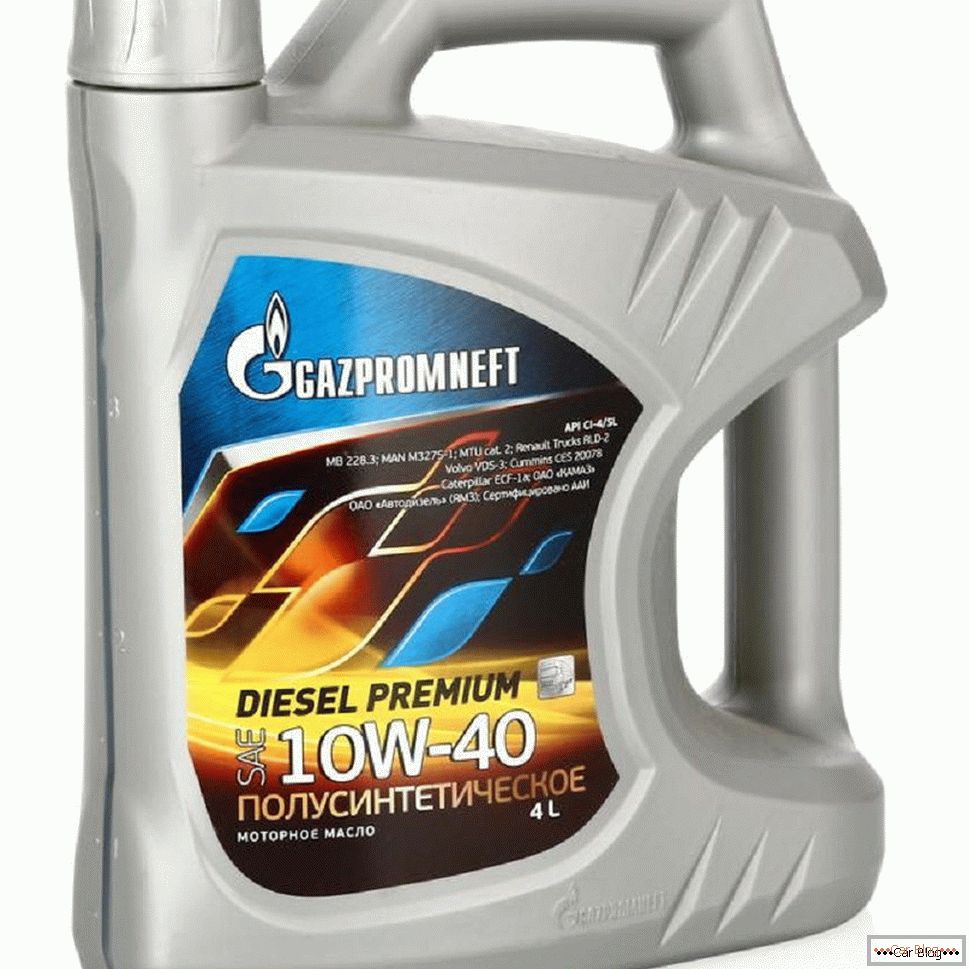
Semi-synthetic oil
Changing the oil to a more viscous one has its advantages and disadvantages when the engine is very worn. This procedure allows you to protect the friction parts in the motor, while not creating a thick film. The best protection is provided by the most “durable” composition, not the “thickest” one. In the modern market of products you can find oils with additives that make the film indelible. They owe their properties to complex esters, which, in turn, have natural magnetic properties, providing a strong film.
At the same time, a more viscous composition must be poured in view of the fact that the gaps in friction pairs are increased. If you pour grease with unsuitable properties, then it will be spent on waste. The coefficient of oil viscosity must be changed as engine wear. It is for this reason that no manufacturer of cars or engines never specifies specific figures - we are always talking about the range of viscosity coefficients. It is strongly recommended not to go beyond the range prescribed by the manufacturer. Each engine is designed to work with a certain oil, so using the wrong one can damage the system and even make it stop working.
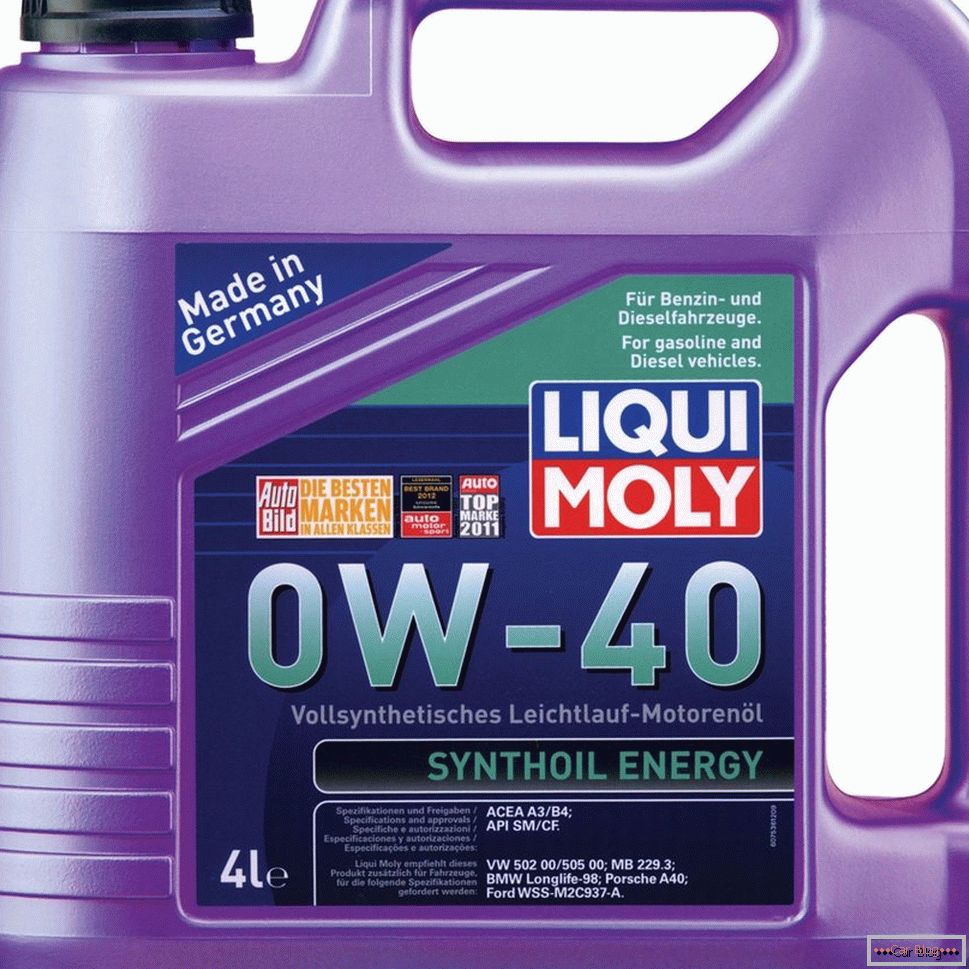
Synthetic oil
Nevertheless, some experts believe that the use of a more viscous composition leads to disruptions in the operation of the motor. A pump that pumps a fluid is not ready to work with a lubricant of a different viscosity, so it starts to wear out. In addition, this creates the risk of oil starvation in certain areas of the engine, which leads to failures and engine failure. It is these arguments that are voiced by opponents of changing the viscosity of the oil during the operation of the car. First of all it is necessary to make sure that this or that oil is approved for use by the manufacturer. In addition, in all qualitative compositions in our time are used additives that protect the fuel system from wear and damage - they are equally well manifest themselves in new engines, and those that have high mileage.
How to choose engine oil for a high mileage engine
In order to determine which lubricant is best suited for a particular vehicle, it is first necessary to study the requirements of the manufacturer of the car. The vehicle manual must contain specification information, acceptable viscosity coefficients and other properties. Thus, the first step is to look into the manual.
Type of engine oil
According to the production principle, lubricants are divided into three types:
- Mineral (organic);
- Synthetic;
- Semi-synthetic.
The latter type combines organic and inorganic components. Most often, semi-synthetic oils are used in post-Soviet countries.
When choosing the type of composition should be guided by the recommendations of the manufacturer of equipment. Each engine has an individual design and principle of operation, which means that replacing even with expensive and high-quality synthetic oil can not only not give advantages, but also destroy the engine.
As for the semi-synthetic composition, it is also not suitable for use in every engine. The choice in his favor is made because of the greater quality, but it also has greater fluidity. This property may adversely affect the engine, in which the use of semi-synthetics is not provided. Particularly critical will be the consequences for engines with high mileage.
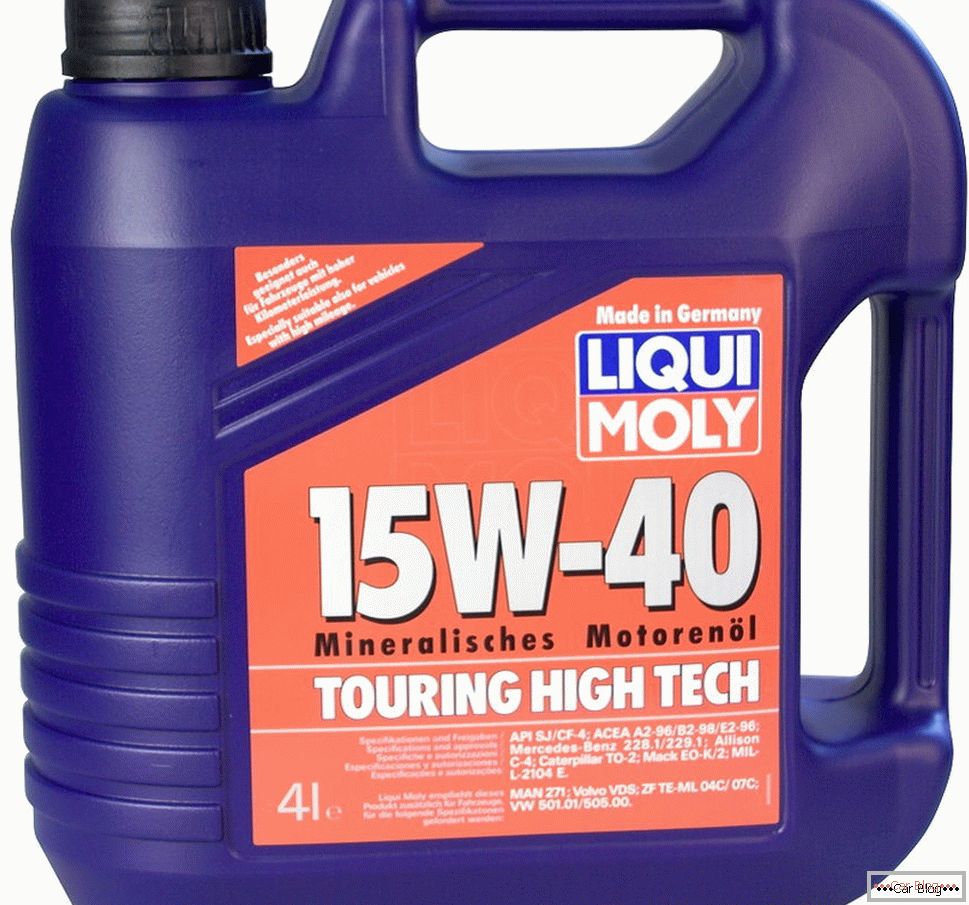
Mineral oil
For car engines that have a mileage of about 100,000 kilometers (especially if the unit is domestic), the use of mineral composition is recommended. In addition, it has a lower price - it allows you to save on frequent topping-up, which the old engine needs.
Additives in engine oil
Almost all modern lubricants for engines are available with the content of certain additives.  Discounts for new cars! Profitable loan from 9.9% installments 0%
Discounts for new cars! Profitable loan from 9.9% installments 0%  adom.ru. For engines with high mileage, molybdenum disulfide and its analogues are best suited to reduce the degree of wear of the unit. Molybdenum disulfide is able to fill the space in the engine at normal operating temperature of the latter. Holes formed during operation of the motor are compensated by the additive. In addition, the composition against wear is recommended to use even in new cars, adding it every fourth or fifth replacement.
adom.ru. For engines with high mileage, molybdenum disulfide and its analogues are best suited to reduce the degree of wear of the unit. Molybdenum disulfide is able to fill the space in the engine at normal operating temperature of the latter. Holes formed during operation of the motor are compensated by the additive. In addition, the composition against wear is recommended to use even in new cars, adding it every fourth or fifth replacement.
Almost all modern manufacturers have oils with molybdenum disulfide or its analogues. However, for safer use it is recommended to use products of well-known brands. They are easier to check for quality.
Marking on motor oil packaging
It is difficult to determine which marking corresponds to the best oil for an engine with high mileage. To do this, you can study the manual, which describes the nuances of the operation of an engine. It is necessary to look for grease containers with the appropriate situation marking.
On the vast majority of cans and cans, two parameters are indicated - the thickening index and the viscosity index. As an example, consider the labeling SAE 10W-30. The first number determines the thickening of the oil. The lower the value, the lower the ambient temperature allowed for operation. The second number determines the degree of viscosity, the composition shows at a temperature of 100 degrees Celsius.
Another standard common to the world is API. Its index consists of two letters of the Latin alphabet, the first of which is invariably S. The higher the number of the second letter, the better the quality of the oil. So, for engines with high mileage recommended standard SF.
Total
Choosing the best oil for a high-mileage engine is a complex and ambiguous procedure. It should be borne in mind that no composition can return the old state to a worn out engine, but it can normalize its operation (including the consumption of mixtures) for some time.

